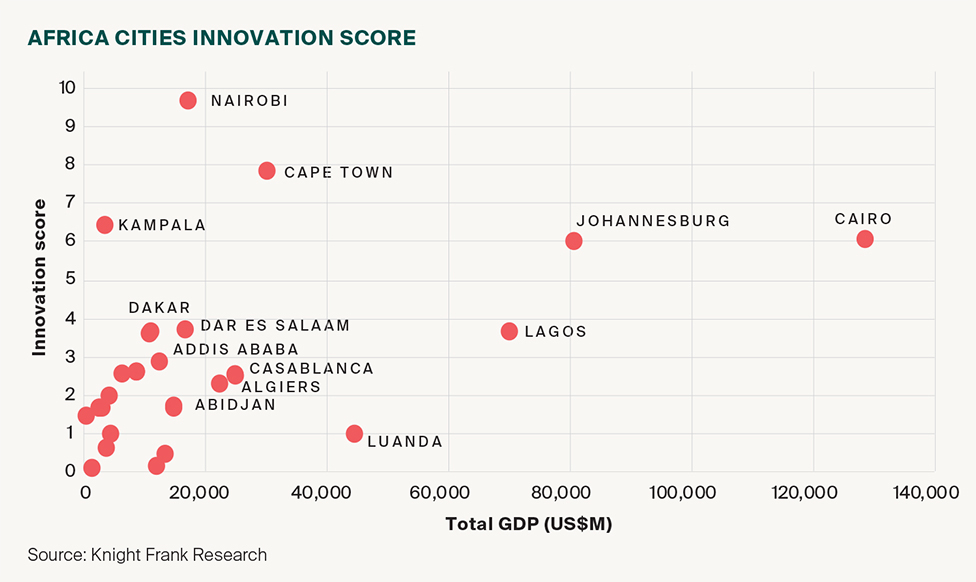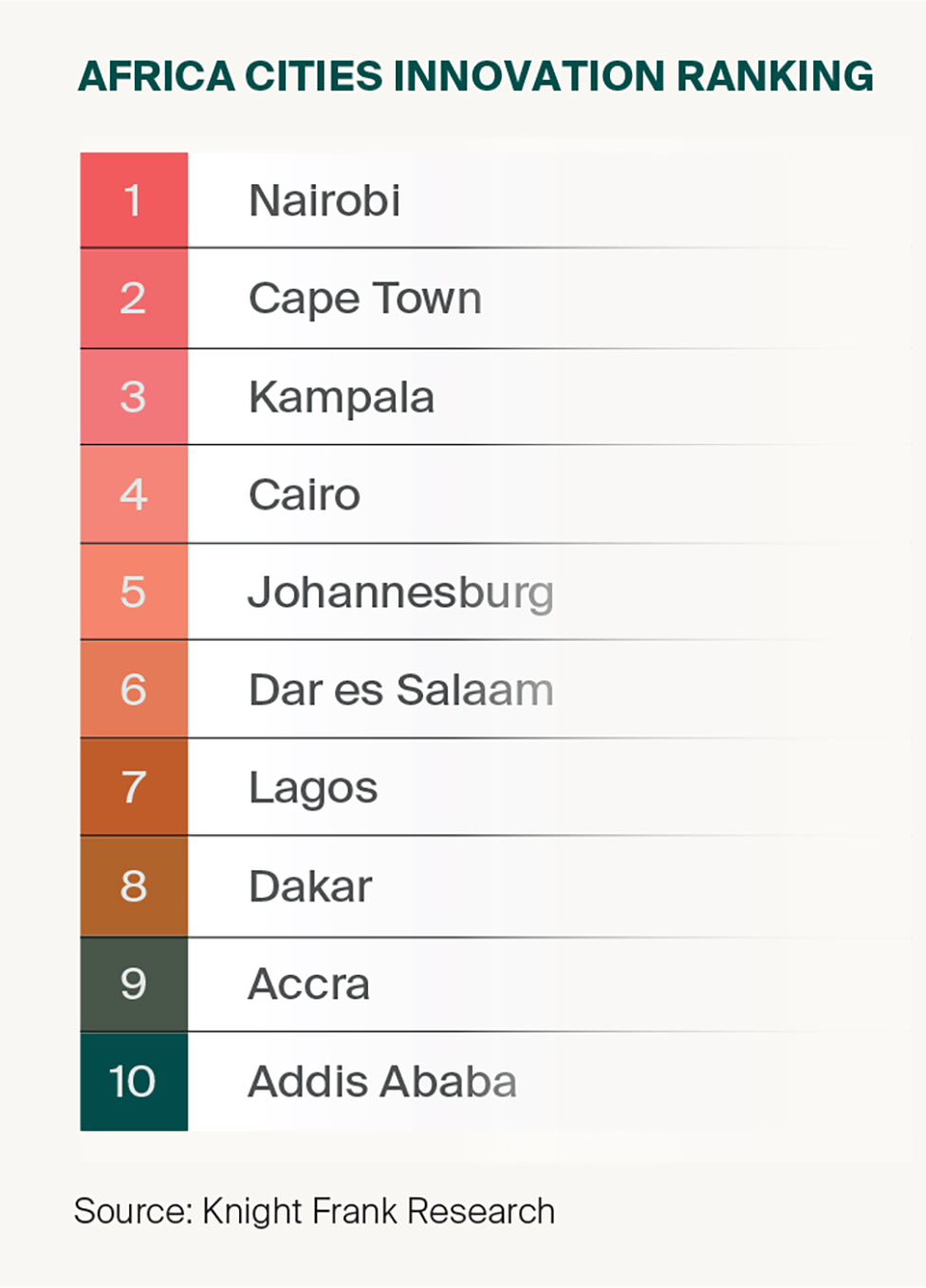Africa's urban hotspots attracting the top talent
Cities with a flair for innovation will prosper and grow by attracting talent. New research from Knight Frank reveals which of Africa’s urban hotspots are beckoning the best and brightest
2 minutes to read
The ability of African cities to emerge resilient from the Covid-19 pandemic will depend on their ability to innovate, providing long-term social solutions to their residents, attracting funding and generating new demand for space. In real estate terms this resilience is demonstrated by cities that can sustain tenant demand, support rental levels and capital values and, ultimately, deliver returns for investors.
Knight Frank’s research into Africa’s innovation-led cities collected over 100 different indicators, including data on more than 3,000 institutions across the continent. From a long list of over 500 cities these indicators were applied to 29 capital cities to determine the level of innovation and growth, and hence the greatest prospects for resilience for real estate investors.
We used statistical modelling techniques to determine which observable variable best represented innovation and create an innovation score for each city. This score comprises three components:
1. Innovation activity, such as the total number of start-ups
2. Level of innovation funding
3. Innovation infrastructure, such as the number of research institutions.
Scores allocated are between 0 and 10, with 10 being the highest.
In the scatter plot below, we map each city’s innovation score against its GDP. Lower risk investors will favour cities with above-average innovation scores and a robust economy. These include Cairo, Egypt – the stand-out performer – and Johannesburg, South Africa.
These cities have the greatest potential to remain economically resilient in the long term despite undergoing short-term shocks.

Cities that score higher for innovation but have less robust economies (on the left of the chart) will attract those willing to take more risk, such as private equity investors. These cities include Nairobi, Kenya, Cape Town in South Africa and Kampala, Uganda.
Nairobi is the top city in Africa for innovation and ranks among the top 100 globally. The city offers a good balance between the number of research institutions, available innovation funding and innovation activity (including start-up activity), as well
as ease of doing business.
Notably, smaller cities such as Kampala also scored highly for innovation, resulting from an agglomeration of research institutions and increased start-up activity.
